
By Lara Gabrielle Fowler
One year after Judy Garland and Vincente Minnelli fell in love on the set of Meet Me in St. Louis the contemplative wartime drama The Clock came to fruition. Up to this point in Judy Garland’s career, her roles had been limited to girl-next-door types and she always sang at least one song (with the exception of Life Begins for Andy Hardy, for which a song entitled “Easy to Love” had been written but cut from the final project). This marked Judy Garland’s first foray into the field of drama, for which her considerable talent was grossly underestimated. The Clock would be followed later in her career by a number of very successful dramatic roles including one in the epic Judgment at Nuremberg which landed her an Academy Award nomination for Best Supporting Actress. Minnelli, in his directorial genius and insight into the inner workings of Judy Garland’s enormous talent, saw in her a flair for drama, and directed her in such a way that it would be easily visible to the audience just how much she could do with the material.
Joe (Robert Walker), a soldier on leave in New York City for 48 hours, meets local girl Alice Mayberry (Garland) when she loses her heel at Penn Station. The two strike up a conversation, and immediately take to one another. He asks her to dinner, and though she is initially hesitant, she agrees to meet him under the clock at the Astor Hotel at 7:00. After going through a series of mishaps together, including a missed bus that ended in a late-night ride with a milk man, they discover that they have fallen head over heels in love. Given that Joe has only a few hours left before he must go back on active duty and knowing this may be their only chance, they decide to get married at once. They must have all paperwork completed before 5:00, closing time at the marriage officiant’s office.
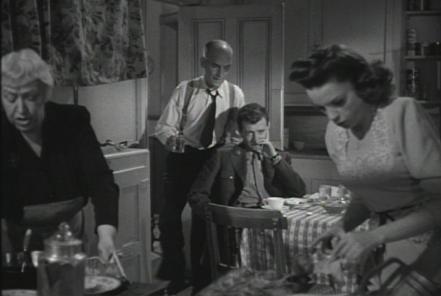
Joe and Alice at the home of the milk man who gives them a ride after a missed bus.
Their process acquiring all the necessary paperwork and blood tests for the marriage is a masterful moment of suspense in the film. We see the hours tick by, and knowing all that they have to get done in that short amount of time, the audience is made to feel the same feelings of rush and urgency that Joe and Alice do. This is a testament to both Minnelli’s direction and the film’s superb editing. As they chisel away the bureaucracy of the system, Joe and Alice encounter those who are unconcerned with their plight, and others who are sympathetic, leading them to arrange everything just in time and catching the marriage officiant as he is on his way to the elevator to catch his train home.
Joe and Alice are married in a makeshift ceremony, punctuated by a loud passing train that drowned out much of the service and the officiant hurried off as soon as it was over. Disappointed in such an unsentimental ceremony, they go out to a cheap cafe for dinner. Alice breaks down over how unceremonious the event was and they depart for a local church, where they quietly recite the marriage service themselves sitting side by side in a pew. Their tranquility is starkly contrasted with the cool indifference that marked their official marriage, and it is a beautiful moment in the film nicely acted by both Garland and Walker.

Shortly after their marriage, Joe boards a train back to his camp. Joe and Alice bid each other farewell with an optimistic and confident “See you soon.” The film ends as Joe leaves, with Alice walking numbly on the train platform. Whether Joe and Alice will see each other soon, or whether they will even see each other again is uncertain. The film’s ending leaves the viewer with his own vision of Joe’s fate, representing the very real emotions prevalent in the last days of World War II.
Fine acting and fine directing make up this real gem of a film, an unusually pensive and thoughtful look at the harsh realities of wartime concerns. It may be thought of as a precursor to The Best Years of Our Lives, examining the difficulties of the active soldier in the same way The Best Years of Our Lives examined the difficulties of veterans. It is a largely underestimated film, and too often glossed over in discussions of quality wartime drama. During the filming, the romance between Garland and Minnelli intensified, and by the end of shooting, they were engaged. They married in June of 1945, one month after the release of the film.
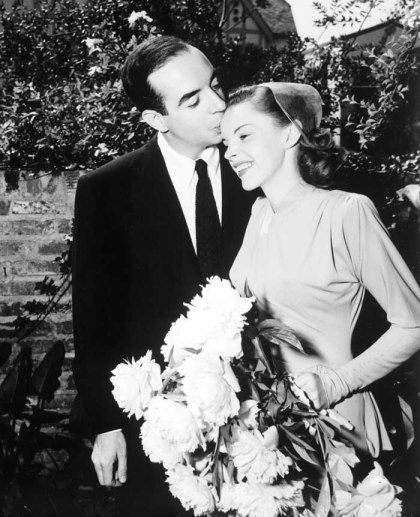
See you next time!
This has been an entry in the Classic Movie Blog Association’s Fabulous Films of the Forties blogathon. Thanks for hosting, CMBA!
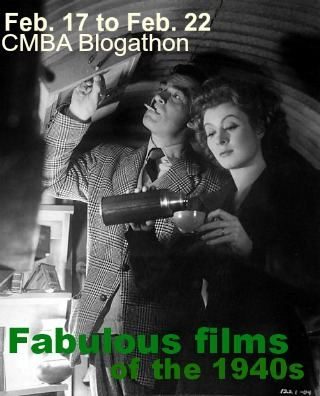

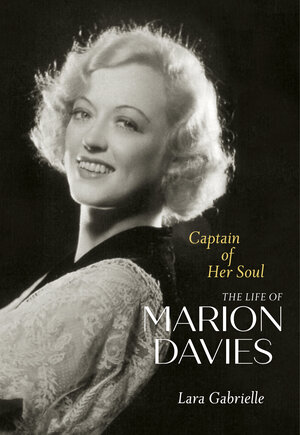


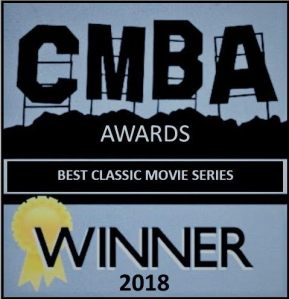



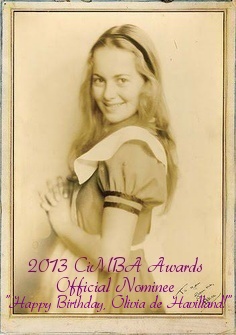
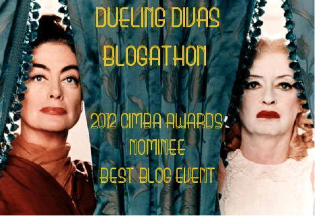








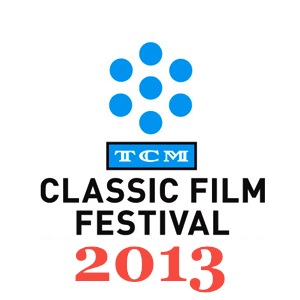



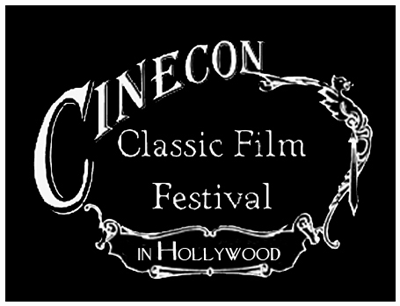




_03.jpg)
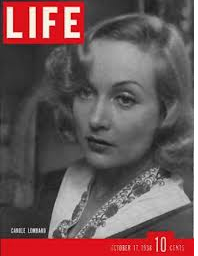

A lovely post. Very interesting point here: “It may be thought of as a precursor to The Best Years of Our Lives, examining the difficulties of the active soldier in the same way The Best Years of Our Lives examined the difficulties of veterans.”
This hadn’t occurred to me before, but it’s a great thought and, you’re right, this is a film that is underestimated and should be re-examined. Thanks.
I’m a big fan of films that take place within a constrained time period and that’s what is most appealing (for me) about THE CLOCK. The difficulty in crafting a romance like this can’t be devalued. I remember BEFORE SUNSET (1995), which tried to achieve a similar result. Depite critcial allocades, the magic just wasn’t there as it was in THE CLOCK.
I love The Clock, which is one of those movies that just sneaks up on you. Walker and Garland are fantastic together. She shows she’s more than a singer and he shows he can put plenty of depth into those good guys he was playing at the time.
I agree. I really like “Before Sunset,” but I think the underlying theme of war makes “The Clock” work as well as it does. I also think there is something special about time-constrained films, maybe because it often shows the characters going through a brief moment of intense emotion.
You are so right that “The Clock” is a gem. The story is a great testament to the resiliency of people and, in its telling, a great example of the talents involved.
Lovely post and selection.
I have never seen this. It would be nice to see another of Garland’s dramatic performances. The story sounds very touching.
It’s been a long time since I’ve seen this, and I really must re-visit. Last week, I saw a sailor and a young lady walking down Michigan Ave. in Chicago and I thought of “The Clock.” And then I read your post. Now I really have to see this one again.
Truly a tender film and it proved at the time Garland could do a dramatic role. Nice post.
I love this movie anf I adore Judy Garland No one like her!
I’ve always thought Judy Garland and Robert Walker were especially well matched in this film. Both such fine dramatic talents. He didn’t live long enough to fulfill the promise his performance in “Strangers on a Train” seemed to presage, and her career…well, her life, was so erratic. And then there’s Vincente Minnelli whose career was long and legendary. Unfortunately, “The Clock” seems to have been overshadowed by his other, ‘bigger’ films.
For me, this is one of Judy’s finest performances and proves that she could do it all (and usually better than anyone). She is magical and beautiful in this film and Robert Walker is a perfect co-star.. Awesome post (and awesome choice).
I agree that this was such a good film and it does remind me of other films with it’s format, plot. I really rooted for Joe and Alice and the casting was perfect. Judy was such a talented actress. I’m surprised the film isn’t better known.
When other wartime films have gotten more attention, positive press with age, this one seems to have been left behind, all on it’s own. The only thing I would change about it is the title. The film deserves something more interesting than The Clock.
I wasn’t aware that this was the film where Judy and Vincente fell in love. Interesting info and a nice review, addition the the Blogathon.
Page
I love this film. I reviewed it a few years ago and I marvel at the power that comes from the deceptively simple storyline. Great performances all around and one of Judy’s very best.
I remember seeing a trailer for this on TCM once, but forgot to record it. It would be really interesting to see Judy making that transition to drama, and the story sounds really lovely. Great post!
Thanks Lindsay, yes it’s a great one. It plays on TCM from time to time but not as often as it deserves to be. If you catch it on TCM or see it at the movie store, definitely check it out.
Vincent Minnelli always made Judy look so beautiful. I think she looks her most beautiful in his films. The Clock is a very beautiful film. I remember liking it much more than I expected to when I first watched it. Robert Walker was also very underrated.
Excellent review!